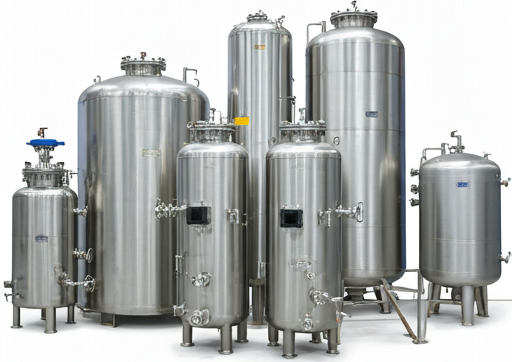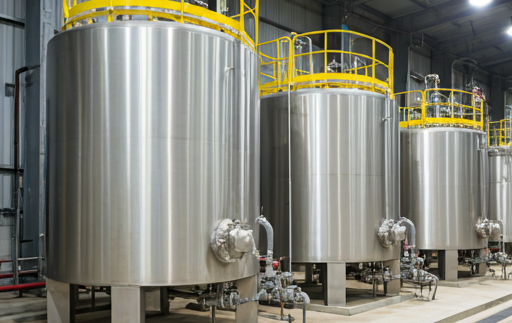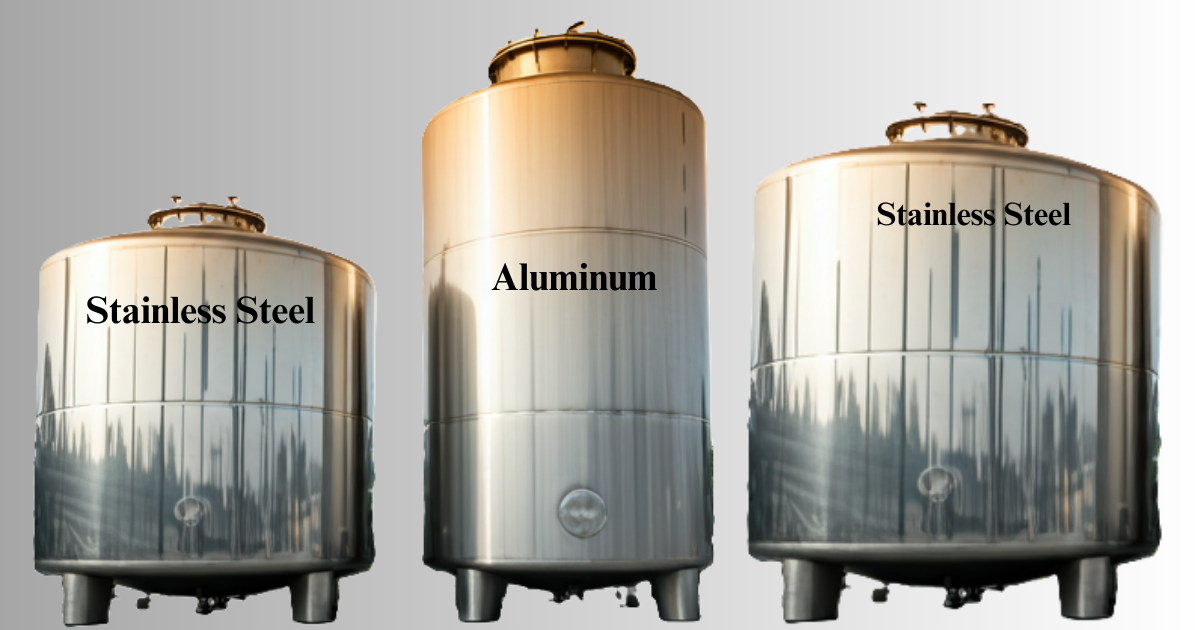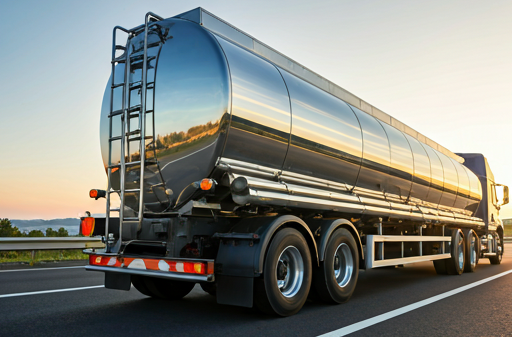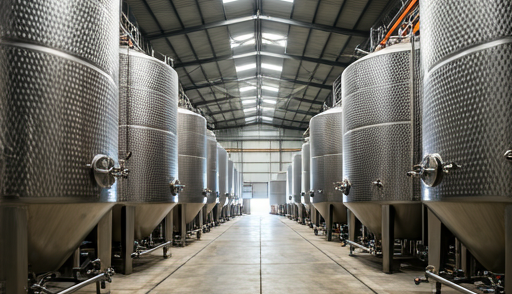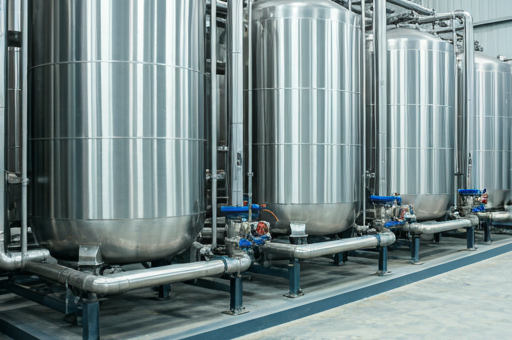
- 18 Dec 2024
How SS304 and SS316L Vessels are Best: Water Treatment to Pharmaceuticals
When it comes to choosing the right material for industrial vessels, especially in sectors like water treatment and pharmaceuticals, two stainless steel grades stand out: SS304 and SS316L. These materials are not only durable and corrosion-resistant but also meet the stringent demands of industries that require high-quality, reliable equipment. Whether you’re working in water treatment plants or pharmaceutical manufacturing, these stainless steel grades offer unmatched benefits.
Let's dive into why SS304 and SS316L vessels are the best choice for your industry, covering everything from their properties to their practical applications.
SS304 vs SS316L: What’s the Difference?
To understand why SS304 and SS316L are favored in various industries, it's essential to compare their unique properties.
- SS304: Often referred to as 18/8 stainless steel due to its composition of 18% chromium and 8% nickel, SS304 is highly resistant to corrosion in a wide range of environments. It is widely used in applications where the material is exposed to moisture and mild acids, making it ideal for water treatment and other general industrial uses.
- SS316L: This low-carbon version of SS316 stainless steel contains molybdenum (2-3%) in addition to chromium and nickel. The molybdenum enhances its resistance to corrosion, especially in chloride-rich environments. This makes SS316L the go-to material for industries like pharmaceuticals and food processing, where high purity and resistance to harsh chemicals are critical.
Unmatched Durability and Longevity
Durability is one of the key reasons SS304 and SS316L vessels are widely preferred in industries that require long-lasting, low-maintenance equipment.
- In water treatment, SS304 vessels stand up to constant exposure to water, mild acids, and cleaning agents. These vessels can handle the pressure and contaminants typically found in water treatment systems, offering a reliable solution for years.
- SS316L, with its superior corrosion resistance, performs exceptionally well in pharmaceuticals, where vessels endure high temperatures, sterilization processes, and exposure to aggressive chemicals. This ensures that your equipment remains functional and contamination-free for extended periods.
Get the Tanks for Chemical Industries



Corrosion Resistance: A Must for Harsh Environments
One of the main reasons SS304 and SS316L are favored in critical applications is their ability to resist corrosion in even the harshest environments.
- SS304 provides excellent protection against corrosion from water and mild chemicals. It is an ideal choice for water treatment plants and food and beverage industries, where exposure to moisture and occasional acidic or alkaline conditions is common.
- SS316L, however, goes the extra mile. It is particularly resistant to chlorides, making it perfect for pharmaceutical applications where exposure to salts, acids, and sterilizing agents is frequent. It’s also highly resistant to pitting and crevice corrosion, which are common issues in highly corrosive environments.
Hygienic Properties for Sensitive Industries
In pharmaceuticals, food processing, and water treatment, hygiene is paramount. Both SS304 and SS316L are non-reactive, ensuring that they do not affect the quality of the water or product inside the vessels.
- SS304 is commonly used for water filtration and other non-sensitive applications, as it does not leach into the system and ensures clean, safe water.
- SS316L, thanks to its superior resistance to corrosion, is preferred in the pharmaceutical industry, where maintaining product purity is critical. This material can withstand rigorous sterilization processes, ensuring the integrity of medications and bioproducts.
Cost-Effectiveness in the Long Run
While SS316L is generally more expensive than SS304, both materials offer excellent value for money due to their low maintenance costs, long lifespan, and high performance.
- For water treatment, SS304 vessels provide a cost-effective solution without compromising on durability and functionality. They’re ideal for basic to moderately harsh conditions, offering excellent corrosion resistance at an affordable price.
- In the pharmaceutical industry, although SS316L comes with a higher upfront cost, its superior performance in demanding environments makes it the best investment for long-term durability and compliance with strict industry standards.
Easy Fabrication and Customization
Both SS304 and SS316L are easy to fabricate, which means that manufacturers can design custom vessels tailored to specific needs.
- SS304 is frequently used for general applications due to its ease of fabrication and cost-efficiency. It can be easily welded and formed into tanks, reactors, and other vessels that require robust, high-performance solutions.
- SS316L, with its slightly higher strength and corrosion resistance, is often used in specialized vessels for the pharmaceutical industry. The material is easy to work with, allowing manufacturers to create complex designs that meet strict industry requirements.
Key Applications in Water Treatment and Pharmaceuticals
Let’s look at the industries where SS304 and SS316L excel:
- Water Treatment: SS304 is commonly used for filtration systems, holding tanks, piping, and valves in water treatment facilities. Its resistance to rust and corrosion makes it ideal for processing clean water, wastewater, and industrial water systems.
- Pharmaceuticals: SS316L is the preferred choice for the pharmaceutical industry, where vessels are used for processes like drug formulation, sterilization, and chemical mixing. The superior resistance to harsh chemicals, sterilization agents, and temperature extremes ensures the longevity and safety of the equipment in these critical applications.
Why SS304 and SS316L Are the Best Choice
When selecting the right material for your industrial vessels, SS304 and SS316L stainless steel stand out for their durability, corrosion resistance, and hygiene properties. These stainless steel grades ensure that your vessels can handle everything from water treatment to the most demanding pharmaceutical processes without compromising on quality or performance.
- SS304 is ideal for general industrial applications where cost-effectiveness, durability, and moderate corrosion resistance are key.
- SS316L provides superior resistance in harsh environments, making it perfect for pharmaceuticals, food processing, and other sensitive industries.
Investing in high-quality vessels made from SS304 or SS316L is an investment in long-term reliability, safety, and efficiency. Whether you're working with water treatment or pharmaceutical manufacturing, these materials ensure your equipment performs at its best for years to come.
1. What is the price of a 1000-litre stainless steel water tank?
The price of a 1000-litre stainless steel water tank can range from Rs 11,000 to Rs 71,106, depending on the brand, construction, and features.
2. Why should I choose a stainless steel water tank for my home or business?
Stainless steel water tanks are highly durable, corrosion-resistant, and provide long-lasting performance, making them ideal for both residential and commercial use.
3. What are the benefits of a 5-layer stainless steel water tank?
A 5-layer stainless steel water tank provides enhanced durability and better insulation, helping to keep water cooler for longer periods while ensuring the tank lasts longer.
4. Are stainless steel water tanks safe for drinking water?
Yes, many stainless steel water tanks are made from food-grade stainless steel (304), ensuring they are safe for storing drinking water without contamination.
5. How long does a stainless steel water tank last?
Stainless steel water tanks typically last for 20-30 years, depending on the quality of the material and the level of maintenance.
6. What makes food-grade stainless steel different from regular stainless steel?
Food-grade stainless steel, specifically 304 grade, is non-corrosive, hygienic, and resistant to harmful bacteria, making it safe for storing water for drinking and cooking purposes.
7. Can a 1000-litre steel water tank be used for industrial purposes?
Yes, a 1000-litre steel water tank can be used for both residential and industrial purposes, including water storage, industrial cleaning, and other water-related operations.
8. How is the pricing determined for a 1000-litre steel water tank?
Pricing for a 1000-litre steel water tank depends on factors such as construction type (single-layer or multi-layer), material quality, brand, and additional features like insulation or food-grade certification.
9. Is there a warranty on stainless steel water tanks?
Many stainless steel water tanks come with a warranty period of 5-10 years, depending on the manufacturer, ensuring durability and customer satisfaction.
10. Where can I buy a 1000-litre stainless steel water tank?
Stainless steel water tanks can be purchased from local retailers, online stores, and manufacturers' websites. Prices may vary depending on location and brand, so it's advisable to compare different options before making a purchase.

